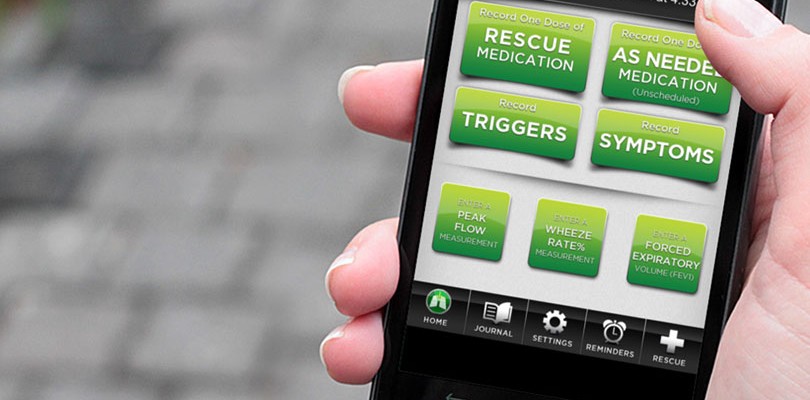
Photo Credit: Mapoula / istockphoto.com
Apps for Asthma Sufferers
There are hundreds of medical apps out there to help you make sense of your management plans, and when you live with asthma, finding the right one can make a huge difference in daily symptoms, number of asthma attacks, and long-term lung health. Since asthma is chronic and inflammatory, you need an app that’s committed to both long-term monitoring and quick, effective info to help rescue you from an attack.
These apps for asthma sufferers can be generally divided into a few categories for asthma management: symptom diaries, reference and reminders, and communication. Some key features you’ll find are lists to record and track your symptoms, alarms to remind you to take your medications, peak flow measurements, and ways to share this important info with your healthcare team. Here are eight particularly helpful apps to consider if you’re serious about getting your asthma under control.
1. AsthmaSense
Although the most recent incarnation hasn’t received as much glowing feedback as previous versions, AsthmaSense is still a frontrunner for asthma tracking. Based on your recorded symptoms, medication, and breathing data, this app keeps you one step ahead of your asthma by alerting you when your risk for an attack goes up.
Now that it’s connected to the cloud, you can access the info and enter in anything you need to add from anywhere you happen to be. It also makes sharing your records with your family and doctors pretty easy.
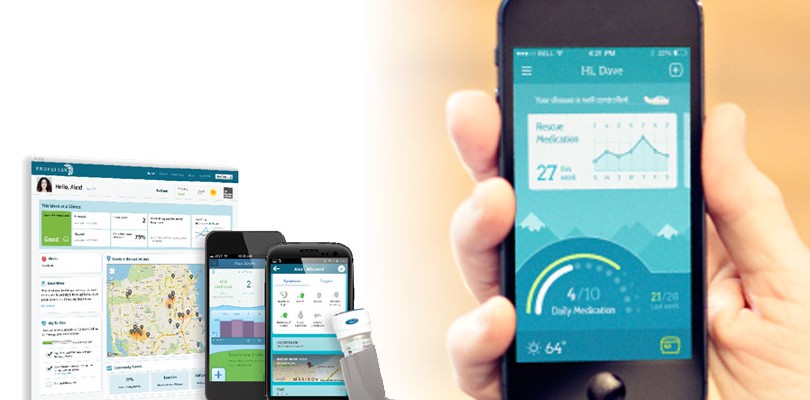
Photo Credit: Mapoula / istockphoto.com
2. Asthmapolis Propeller Health
A self-proclaimed “autopilot” for asthma sufferers, the Propeller app focuses on taking all the guesswork and info juggling out of managing chronic lung conditions. Since so many asthma patients rely on their inhaled medication most of all, it follows that more attention should be given to exactly how it fits into your life: by using a special sensor that attaches to your inhaler, the app tracks how, when, and where you use your inhaler to find trends and compile data.
Given that the focus is pretty specific, there’s very little clutter in this app, and that makes it clear, easy, and pleasant to use.
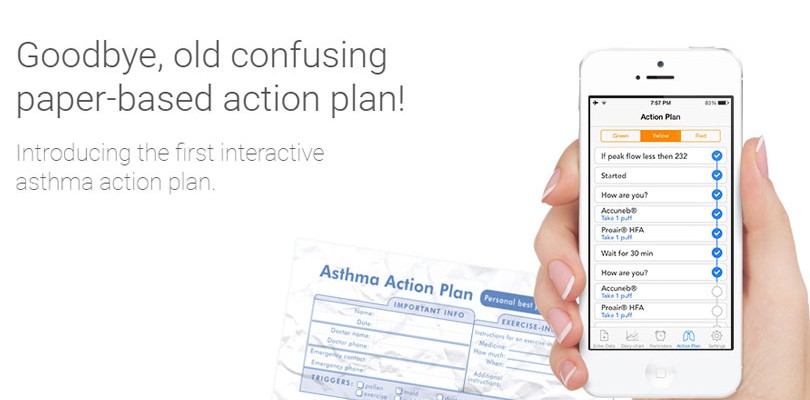
Photo Credit: Mapoula / istockphoto.com
3. AsthmaMD
AsthmaMD combines symptom tracking, reference, and doctor communication in a very streamlined package. The color-coded screens help you quickly figure out just where today’s symptoms fit in your asthma patterns and overall lung health, and the fact that you can customize your triggers and medication beforehand makes for quick recording when you experience a surge in symptoms.
There’s a lot of info on here, but once you get the hang of how to navigate around the features, you’ll find that the highly interactive aspect of the app is very helpful.
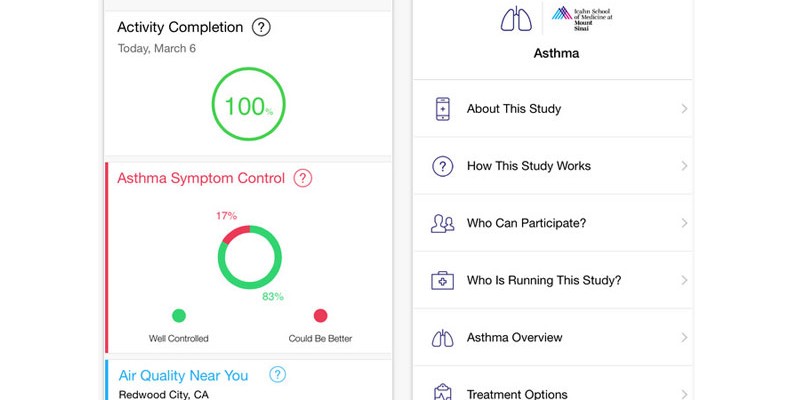
Photo Credit: Mapoula / istockphoto.com
4. Asthma Health by Mount Sinai
Research and testing is essential for improving asthma treatment, so the fact that this app has so far enrolled over 8,400 subjects is a big win for asthma sufferers everywhere. But Asthma Health and all its helpful statistical tools goes beyond reporting info to the centralized medical repository: personal reminders to take your medicine, constant symptom tracking, feedback on your progress, and the new “Doctor Dashboard” will keep you and your medical team in the know. In effect, this app is a well-rounded asthma tracker and a research study in one, so everybody wins.
Unfortunately, animals pose some risk for asthmatics, and while there are ways to limit their impact, a pet may not be best for you or your family.
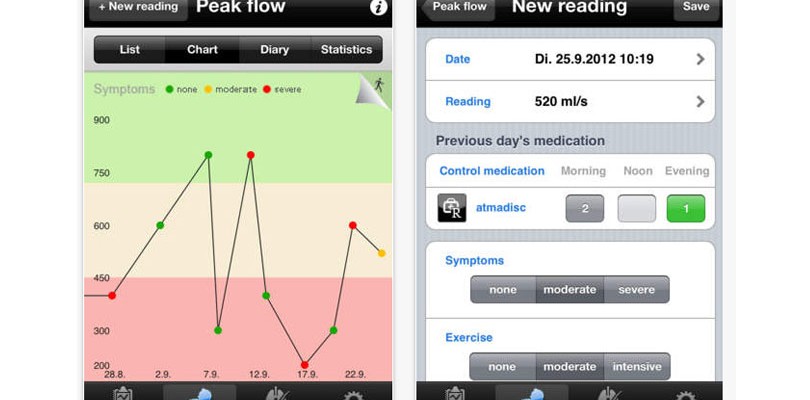
Photo Credit: Mapoula / istockphoto.com
5. AsthmaCheck
An intuitive interface and a simplified system for tracking symptoms make AsthmaCheck a good option for those who don’t have the time or patience to learn the ins and outs of a complex app. You can choose how to view your asthma record — as a list, diary, or chart — which can make it more appealing to your particular preferences. Along with the requisite medication planner and ability to export data to your doctor, AsthmaCheck also lets you track you habits and hobbies to see how they are impacting your symptoms.
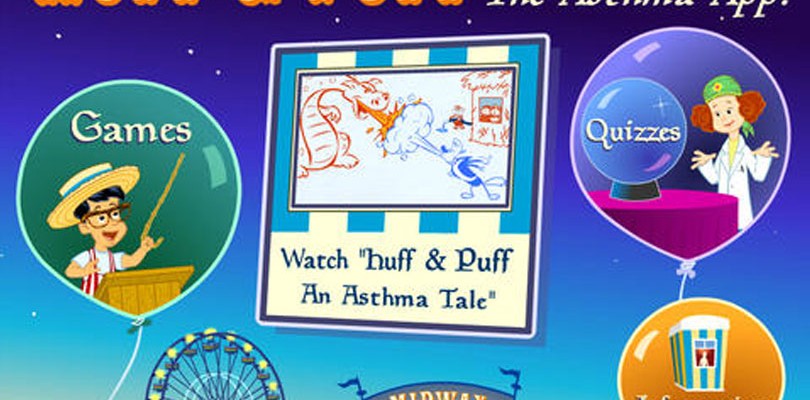
Photo Credit: Mapoula / istockphoto.com
6. Huff & Puff
An asthma app for kids that uses games to demonstrate and educate asthma issues, Huff & Puff is one of the more engaging juvenile asthma apps out there. There are games, videos, and quizzes to help kids learn more about their asthma, and the story (which stars a big bad asthmatic wolf) is good enough to keep them interested. There’s a good deal of high-quality info in here, but it’s presented well and clearly for a younger sensibility, making it a particularly helpful resource.
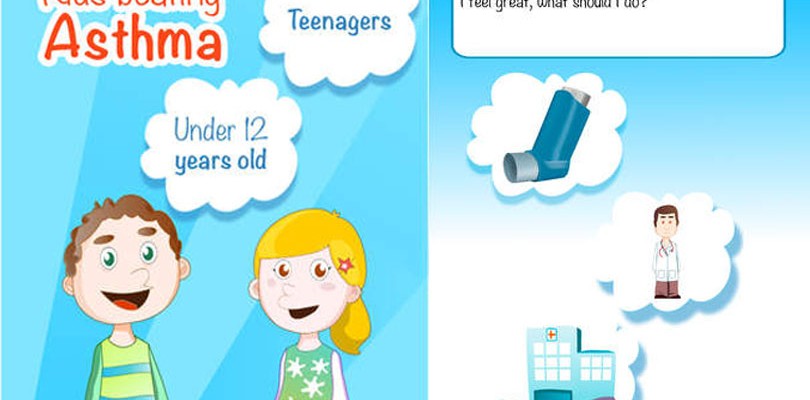
Photo Credit: Mapoula / istockphoto.com
7. Kids Beating Asthma
A bit of step up from Huff & Puff, Kids Beating Asthma explores asthma and its effects more deeply, although it still peppers the experience with fun games and puzzles. There is one stream of info geared to teenagers, and another to younger children; both intend to teach kids how to live happily and comfortably with their asthma. The app was developed at the Universitario San Carlos in Spain, so as expected, the text and voices can be accessed in either Spanish or English.
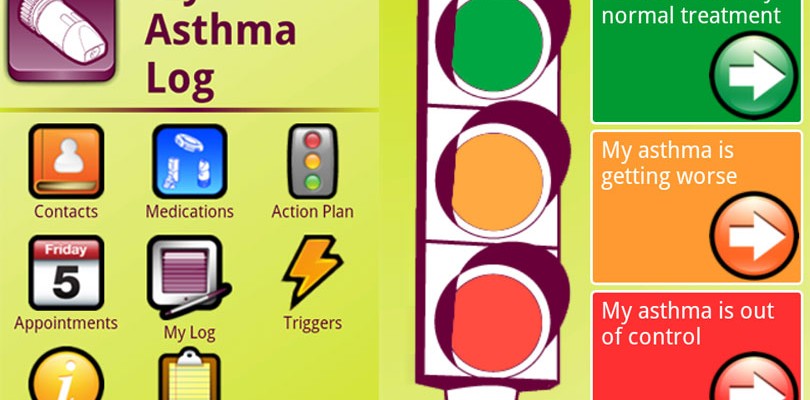
Photo Credit: Mapoula / istockphoto.com
8. My Asthma Log
Bridging the gap between getting to know what asthma is and how to effectively manage it, My Asthma Log is the ideal app for younger sufferers who are ready to take more control of their condition. User friendly (for both children and parents), it streamlines some of the same elements you expect to find in more sophisticated asthma apps: simple questions direct the user to plug in the right data, an area to create your individual plan helps you map out your goals in your own words, and clear and colorful icons help you to sort through the info and organize everything easily.
The best app (or apps) for you may not be the best for everyone — a lot depends on your age, your time, goals, and the severity of your asthma. If you’re recently diagnosed, or don’t have much experience tracking your asthma, begin with something that you find visually appealing and straightforward to use. Give yourself a week or two before abandoning the app — a bit of patience and commitment can go a long way.
When it comes to a low-risk method to help anxiety, sadness and stress, therapy for asthma is your answer. However, not all therapy is equal.








